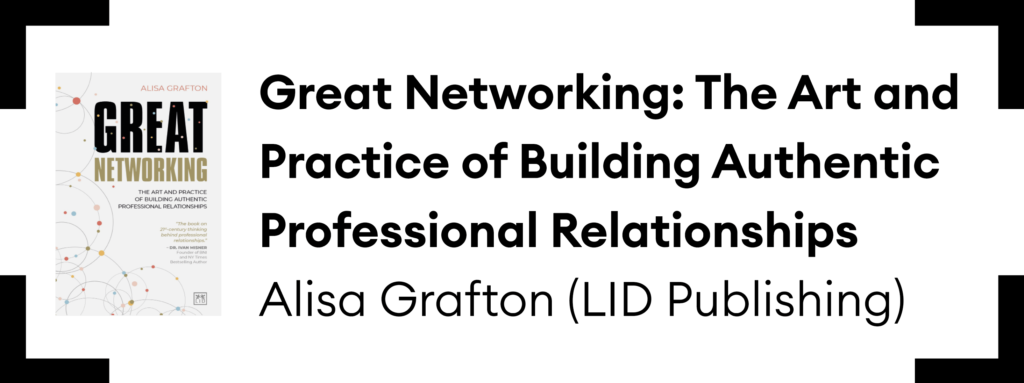Networking should always have a purpose – but the aim might be as simple as finding friendship.
Networking has a mixed reputation. For many, it is at best an exercise in collecting the business cards of people with whom you briefly made small talk and will barely remember in a week’s time. At worst, it feels morally dubious – a tool for salespeople based on a transactional view of human relationships that sees people as objects to be manipulated.
A harsh verdict, perhaps? Alisa Grafton, author of Great Networking seeks to rescue networking and reposition it for the 21st century. A Russian-born notary practising in the City of London, her thinking is influenced by her experience of making her way as a foreigner in a highly competitive environment.
Her focus is on the philosophical and practice-based aspects of networking, drawing occasionally on social science research. In her view, successful networking is essentially about making business friends – long-lasting authentic relationships based on shared interests and values. If those friendships should prove, at some stage, helpful to your career or business, that is a bonus, but it is not the reason for seeking to widen your network of friends.
The immediate benefits of a wider network are the opportunity to help others and improve mental health. In other words, you should be prepared to give far more than you get – which is good for the soul. A lively curiosity and interest in others are characteristics of many successful networkers. This raises the question how far you can learn to be a networker, and how much this is an innate quality. It is surely a bit of both: a characteristic that develops in childhood, but also an ethical position that can be developed as an adult. Of course, some people can fake being interested in others, but they tend to be found out fairly quickly.
Grafton favours face-to-face networking events. She advises moving quickly from small talk on to deeper subjects. Some might find this problematic, fearing rejection – but if the conversation does not reach a deeper level, it is hard to make a genuine and lasting connection. Indeed, says Grafton, showing vulnerability is helpful in building trust.
There is some evidence that Millennials and Gen Y find in-person social interaction problematic, being more comfortable with comparatively superficial online communication – a trend that might have been accentuated by two years of lockdowns. Could younger professionals be disadvantaged in developing the networks they will need to sustain their careers? Maybe. My sense is the jury is still out on how different generations behave; it may not be helpful to place too much emphasis on the differences between generations.
With her emphasis on the intrinsic and altruistic values of a network, Grafton has produced a manual in tune with the values and sensibilities of our times. Nonetheless, she does recommend categorizing contacts based on their value – grading them A, B or C. When push comes to shove, this is still about business benefits.
We all need friends in our professional lives. They make us happier and can be a source of valuable help and advice.
That said, we all need friends in our professional lives. They make us happier and can be a source of valuable help and advice when events take a turn for the worse. Given that we spend so much of our life working, it makes sense that some of our friends will come from that world. Perhaps we are too often focused on meeting that next impossible deadline, at the expense of spending time on the number and quality of our relationships. That is almost certainly a mistake. Increasing the number of real friends from your professional environment can only be a good thing.
Piers Cain is a management consultant.


